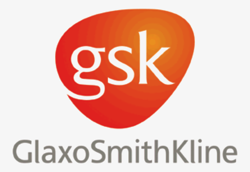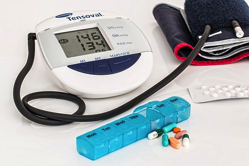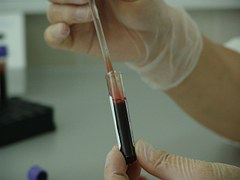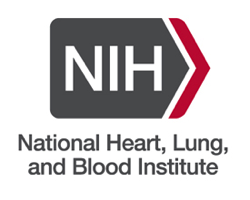
Bethesda-based Northwest Biotherapeutics Inc. is raising $12.6 million in new funding as part of a direct offering to health care-focused investors, according to a company announcement.

The Executive Director is a full-time, benefited position which serves as CEO of the organization, reports to the Board of Directors, and is responsible for all operational aspects of organization including facilities, staff, day-to-day business and financial functions. The position also requires providing entrepreneurial support and advice to FITCI clients. The position requires normal weekday core hours and participation at evening/ and some weekend events. The salary is negotiable.

Like many CEOs, Peter Greenleaf knows that disagreements will inevitably arise among smart, driven executives. He says the best leaders serve as aligners who bring people together to pursue a shared vision, even if they hold different views on how to get there.

Emergent Biosolutions has announced the selection of its spin-off company’s board of directors. The spin-off company, Aptevo Therapeutics Inc., was announced by the Emergent in August. According to an earlier report from Bio Prep Watch, the company will be focused on therapeutics development in oncology and hematology.

Maryland-based Emergent BioSolutions Inc. (NYSE: EBS) will spin out cancer research group Aptevo Therapeutics into its own publicly traded company to be based in Seattle, the company announced this week. The tax-free spinoff will happen in mid 2016, the company said.

The Food and Drug Administration granted marketing approval to AstraZeneca’s gout medicine Zurampic. Zurampic was approved as combination therapy with a xanthine oxidase inhibitors (XOIs) for the treatment of hyperuricemia — an excess of uric acid in the blood — associated with gout in patients who have responded to XOIs alone.

Global biopharmaceutical business AstraZeneca has expanded its presence in Asia by entering two significant relationships with medical companies in China and Japan.
A strategic alliance was announced on December 16, between WuXi AppTec (WuXi), an open-access research and development capability and technology platform company, and, MedImmune, the global biologics research and development arm of AstraZeneca.

Private equity firm TPG Growth just invested $75 million in Precision for Medicine, a Maryland-based startup that melds value-based care with precision medicine.
We’re waiting to hear back from TPG Growth and Precision for Medicine for comment on how this funding will be deployed.

When the Centers for Medicare & Medicaid Services (CMS) issued their 2014 quality and financial performance results in August, an accountable care organization (ACO) formed by Johns Hopkins achieved a perfect score for quality reporting.
The Johns Hopkins Medicine Alliance for Patients, or "JMAP," reported on all 33 quality measures. A perfect quality reporting score is an indication that the ACO is able to provide timely, complete and appropriate information to CMS regarding each of the requisite ACO quality measures.

OrbiMed, a leading investment firm focused on the healthcare sector, announced the closing of its next venture capital fund, OrbiMed Private Investments VI, LP, with $950 million in limited partner commitments. Investors in the fund include some of the preeminent medical research institutions globally, along with leading endowments, foundations and sovereign wealth funds.

It’s taken 30 years and more than $565 million to make it happen: the first-ever malaria vaccine. The innoculation, called Mosquirix, is the first of its kind to fight a parasite and has the potential to transform the lives of millions of people living in malaria-stricken areas. An estimated half million people die from the disease every year, the majority children. Such deaths have fallen by 47% since 2000 thanks to better prevention methods, but many have been waiting a long time for a vaccine that could protect children better and earlier.

Most people would agree that it would be better to prevent cancer, if we could, than to treat it once it developed. Yet economic incentives encourage researchers to focus on treatment rather than prevention.
The way the patent system interacts with the Food and Drug Administration’s drug approval process skews what kinds of cancer clinical trials are run. There’s more money to be made investing in drugs that will extend cancer patients’ lives by a few months than in drugs that would prevent cancer in the first place.

We are at the beginning of a transformation in human health, treating diseases in ways that we could only speculate about in the recent past. While biology isn’t quite engineering (yet), biotech has become a technology-based, high-growth, high-wage space, all while working to cure cancer. Doing well by doing good. It is more than a business.

As we look back on the medtech developments of 2015 there’s definitely a sense that we’re living through revolutionary times. Nearly every day exciting and fascinating technologies are being unveiled by small and large companies, universities, and even tiny independent groups. Empowered by high-powered computers, 3D printers, and other technologies, researchers, scientists, and engineers are coming up with novel solutions to age-old medical problems. Everything from treating gunshot wounds to how fetuses inside the womb are monitored is going through change thanks to technologies developed by thousands of independent minds around the world.

Biologists often emphasize how little anyone really knows about the brain, the genome, and the mechanisms behind effective drugs. But this year their tune changed as diverse technologies–gene editing, stem cells, cloning, and DNA databases–coalesced into an immensely powerful toolkit for manipulating life. The message in 2015 seemed to be: “We can do anything.”

Today, the White House announced the latest recipients of the National Medal of Science and National Medal of Technology and Innovation—our Nation’s highest honors for achievement and leadership in advancing the fields of science and technology. The new awardees will receive their medals at a White House ceremony early next year.

NHLBI has issued the first in a series of Requests for Information (RFIs) to solicit input from its stakeholders on ways to optimize the clinical trials enterprise. This first RFI seeks stakeholder views on clinical trial management, performance milestones, and metrics.
NHLBI has an important legacy of conducting and funding clinical trials that have provided critical insights into mechanisms of human disease and have shaped medical practice improving the lives of those with sickle cell disease, chronic obstructive pulmonary disease, cardiovascular disease, and other debilitating conditions. In funding and overseeing these trials, NHLBI has an important stewardship responsibility to the research participants and the public.

Venky Ganeson, managing director of Menlo Ventures and future chairman of the National Venture Capital Association, told Inc. that 2015 has been the third-strongest year for venture capital investment since the dot-com bubble of the late 1990s. Only 1999 and 2000 were stronger years. The LA Times reported there was $98 billion in worldwide venture capital investment in the first three quarters of 2015 alone. That's 11 percent higher than the investments for all of 2014.

Older adults can be the focus of emerging digital health firms. Kudos to Aging 2.0 and its effort to find an attract startups that can help older adults. So much of the Digital Health landscape acts, just like Apple, agnostic about age, avoiding the chance to shape a market message for products that clearly could benefit (and in Apple's case, do benefit) older adults. Even more striking is the percentage of health care costs that are actually spent on older adults. For other age-indifferent health-related see Connected Health Symposium and mHealth Summit for too many examples. But Aging 2.0 has a different agenda than these -- welcoming the messaging about age and inviting companies that these other events might (or might not) welcome in LivePitch events. Here are a few of the companies in the Digital Health space pitching for pilots at Aging 2.0. Material is from the companies' websites: